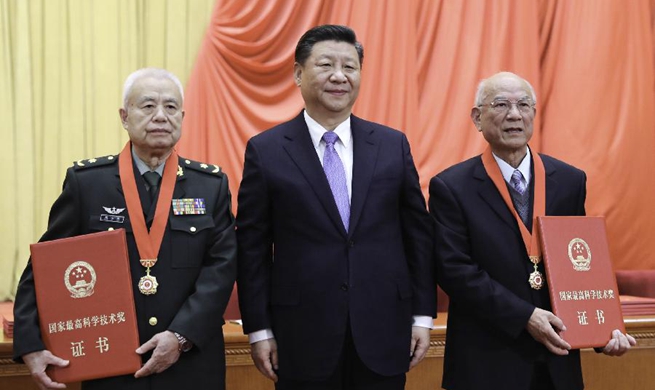LONDON, Jan. 9 (Xinhua) -- Batteries based on lithium-ion will become the cheapest way to store electricity in the near future, according to a study released Wednesday by the Imperial College London.
The study, conducted by researchers at the college, calculates the cost of different energy storing technologies, including large-scale batteries and pumped-storage hydroelectricity.
They predicted that lithium-ion based batteries are becoming the cheapest way of storing energy for most applications, such as making sure energy grids do not suffer large fluctuations and allowing consumers to manage their bills.
The research model shows that at present, the cheapest energy storage mechanism is pumped-storage hydroelectricity. However, as time progresses, pumped-storage hydroelectricity costs do not decrease, whereas lithium-ion battery costs come down, making them the cheapest options for most applications from 2030.
"Our projections show that lithium-ion technologies will see a rapid decline in costs over the next couple of decades. This is driven mainly by the fact that lithium-ion is manufactured at scale," said lead researcher Oliver Schmidt, from the Grantham Institute and the Centre for Environmental Policy at Imperial.













